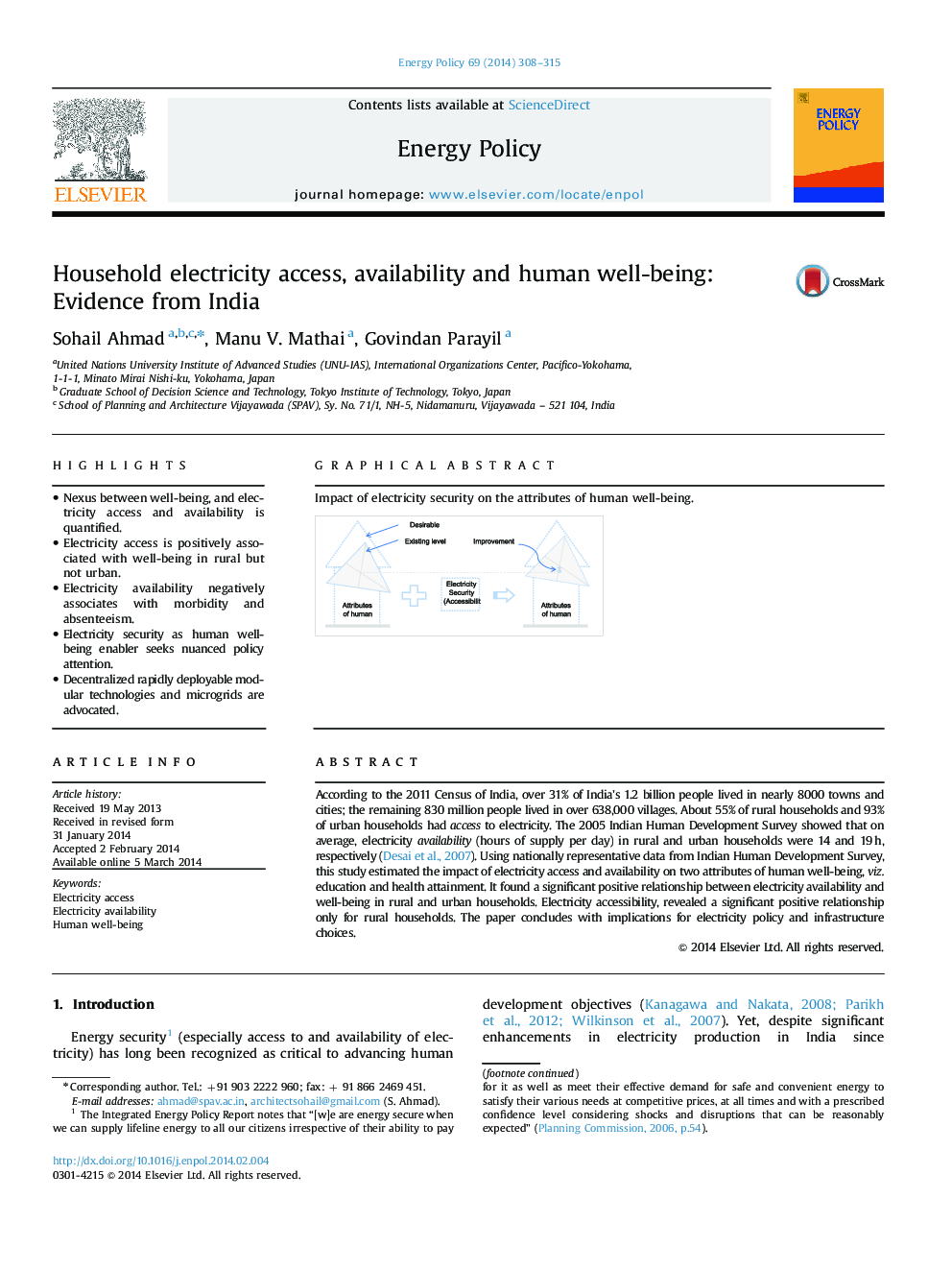| Article ID | Journal | Published Year | Pages | File Type |
|---|---|---|---|---|
| 992907 | Energy Policy | 2014 | 8 Pages |
•Nexus between well-being, and electricity access and availability is quantified.•Electricity access is positively associated with well-being in rural but not urban.•Electricity availability negatively associates with morbidity and absenteeism.•Electricity security as human well-being enabler seeks nuanced policy attention.•Decentralized rapidly deployable modular technologies and microgrids are advocated.
According to the 2011 Census of India, over 31% of India׳s 1.2 billion people lived in nearly 8000 towns and cities; the remaining 830 million people lived in over 638,000 villages. About 55% of rural households and 93% of urban households had access to electricity. The 2005 Indian Human Development Survey showed that on average, electricity availability (hours of supply per day) in rural and urban households were 14 and 19 h, respectively (Desai et al., 2007). Using nationally representative data from Indian Human Development Survey, this study estimated the impact of electricity access and availability on two attributes of human well-being, viz. education and health attainment. It found a significant positive relationship between electricity availability and well-being in rural and urban households. Electricity accessibility, revealed a significant positive relationship only for rural households. The paper concludes with implications for electricity policy and infrastructure choices.
Graphical abstractImpact of electricity security on the attributes of human well-being.Figure optionsDownload full-size imageDownload as PowerPoint slide
